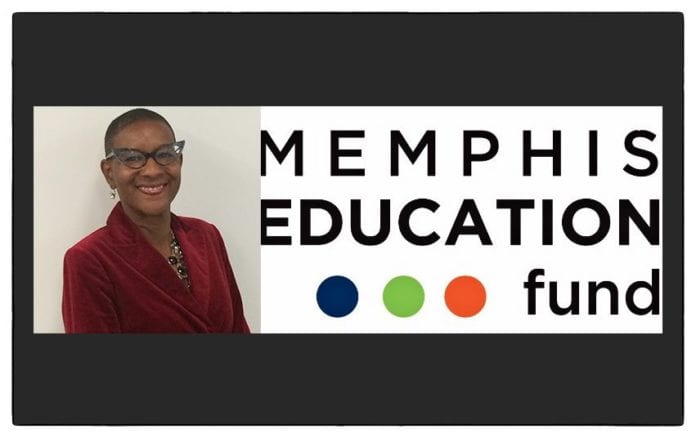by Tosha Downey —
I was raised in South Memphis, in 38126 to be exact. Then and now it has been the city’s poorest community. A pandemic that required global rest and a series of police killings that has caused global unrest has made my community, and many like it, worse.
Yet when your life history and your life’s work have a chance to intersect, you take that chance and make change. You see, my day job is to give away money! I work in philanthropy. I’m an officer at the Memphis Education Fund where we have always focused on education as justice; but now we have had to switch directions to help Memphis’ most challenged families. You can’t do business as usual in a pandemic and in the midst of civil unrest – not if you’re serious.
Our first move was to give families money. Typically, we give grants to organizations – not this time. Shifting the money felt right for me for one reason – my dad. William Earl Downey was the first “poor” philanthropist I knew – a true giver. He was also a Black man born in the 50’s who knew the dangers of police interactions even in peaceful protest.
My dad was everything to me and even more of that to the community: Little League coach, Deacon, brother, uncle, friend, BBQ Champion, and Mayor of South Memphis. He was a pillar of our community. He reminded me often that to make my Black life valuable I had to be mannerable, smart, accomplished, hard-working, and respectable. I also had to “look out for people” i.e. take care of them.
Hungry? We always had a “little extra” food at the house. Going through a hard time? We always had a “few extra dollars” to help. Need a place to stay? We always had a “little extra room” even in 1, 2, or 3 bedrooms. He didn’t talk a lot about what you do to help people, he just did it.
So can you imagine what it feels like to look out your screen door as a little girl and see that the police have your dad sitting on a curb and handcuffed? For outstanding child support. For me? The child that he was supporting? That had to be a misunderstanding, right? But to watch them take him to jail. In a police car.
Moments before, the men were gathered after a day of work. Relaxing. Laughing. Listening to music. When the police come to cruise – not for a call, the mood changes. I.D. gets shown. Bodies get sprawled on cars. Searches happen. Usually, someone goes to jail. That day, it was my dad. I knew to be quiet and not protest through the door. I just cried at how wrong it all felt. My veteran, rule-following, respectable daddy was hauled off to jail.
A few frantic calls later, my mom had bail money. I don’t recall if he spent an hour or a day locked up, but it felt like eternity. No permanent charges were filed. The courts worked out the error. The damage was done though. Officers were no longer “friendly.” They were feared—even when you weren’t doing anything wrong – just being, Black.
These memories of my dad as a giver, rule-follower, and civil rights activist who pushed me to be respectable, created the backdrop for why I do this work alongside a respectable, Harvard educated, Black man who was also raised in Memphis. He is raising a black son, homeschooling him in a pandemic, and struggling with when is the right time to talk to him about racism, the police, and how being good just is not enough.
Rebuilding and repairing education systems must happen in tandem with dismantling the economic and social injustices that a pandemic and black deaths at the hands of police have exposed. This time of unrest has taught us enduring lessons. We all have a role to play in helping children to become the best version of themselves in a world willing to give them real opportunities to live fully.
(Tosha Downey is the director of Advocacy for the Memphis Education Fund.)




